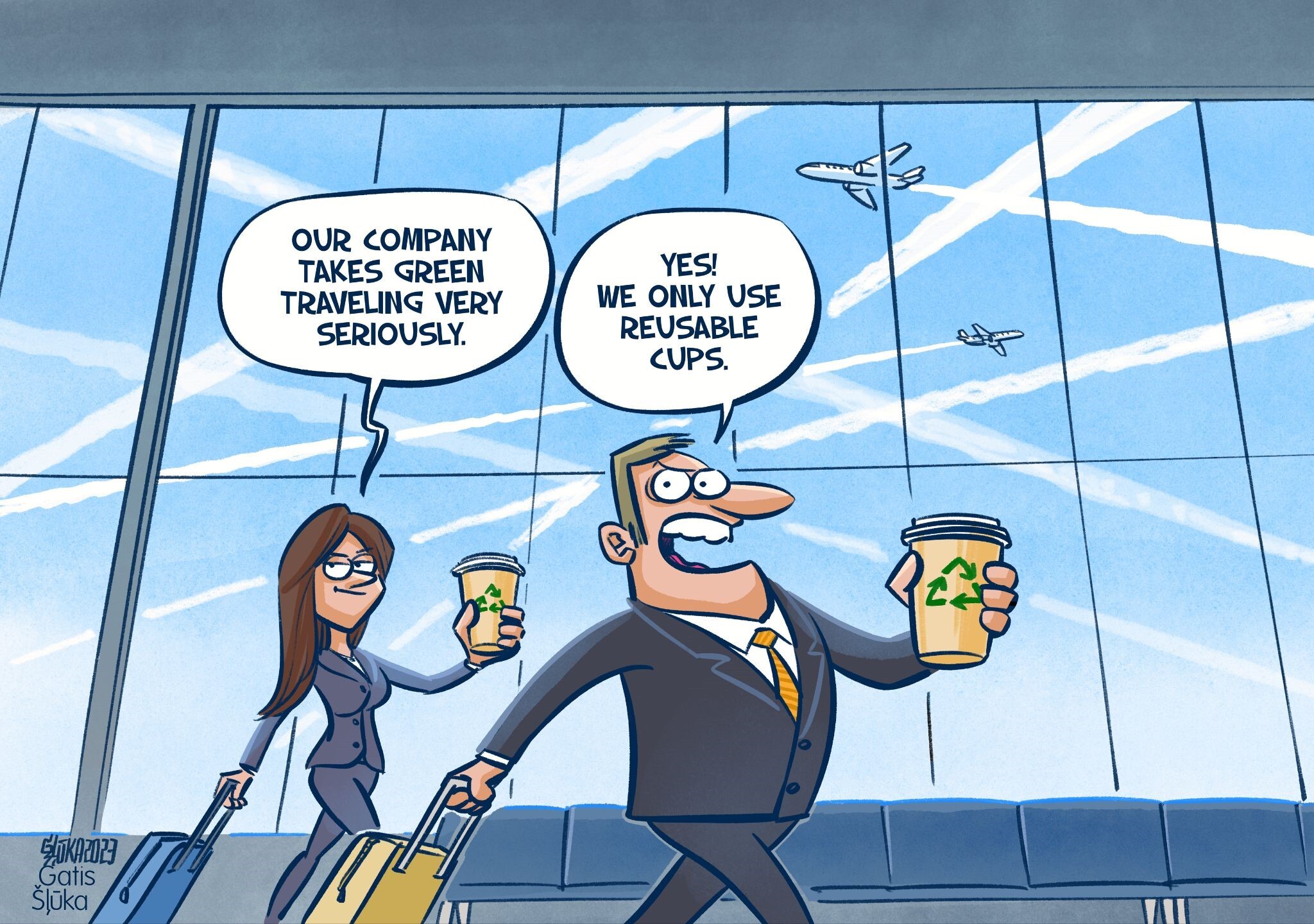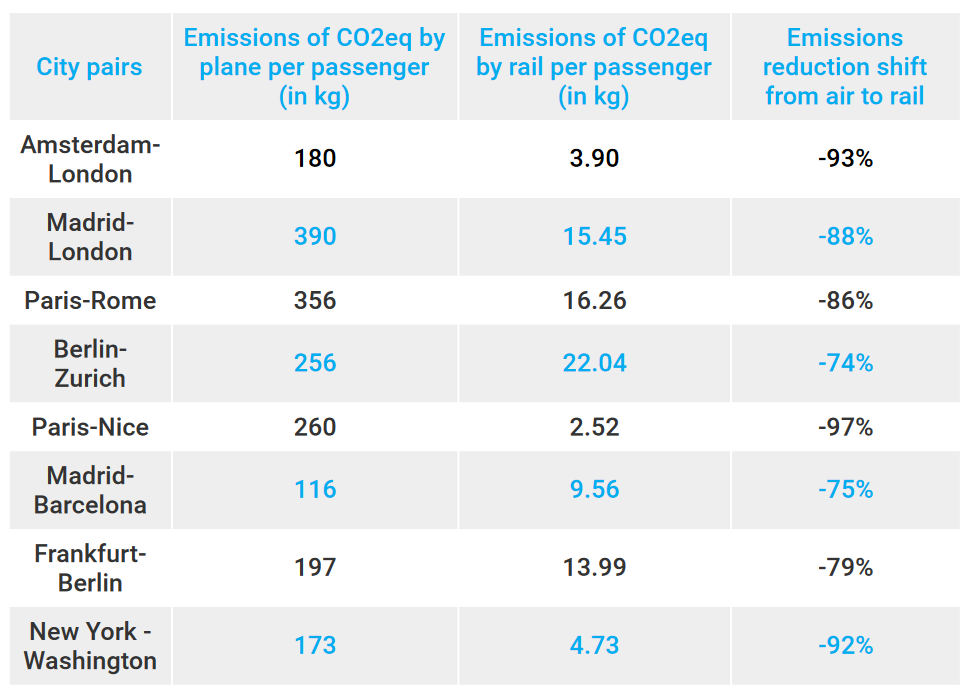Business travel represents 15-20% of global air travel. At a time when companies are trying to reduce their carbon footprints, cutting down on business flying is an easy way to meet sustainability goals. Rail travel is a viable and desirable option, available to companies operating in Europe and the US. Yet too few companies are embracing rail travel in their business travel policies. This is the main finding of a new briefing by the Travel Smart Campaign and Transport & Environment.

Emissions reduction on certain common business routes can go up to -97%.

Only very few companies are actively promoting rail travel among employees. The Travel Smart campaign surveyed 322 companies to gather information on their travel policy practices. Of the companies which replied to the survey, 28 have established policies to shift business flying to rail. Notably, 294 companies either lack policies or have not been identified as having specific policies to shift from air to rail. This is a worrying observation, given the urgency of the climate crisis, T&E says.
Among the respondents, the Travel Smart campaign identified seven companies with ambitious rail policies. These are Swiss Re, Steelcase, ABN Amro, Mapfre, Publicis Group, Ante Group and Simon Kucher. Among the policies identified were:
- Companies set a travel climate budget for the company and per department,
- Companies set a target to convert a share of the air journeys to rail
- Employees must use the train instead of plan for trips below a certain amount of hours or kilometers
- Employees are offered a bigger budget and offer the possibility of booking first class tickets when feasible, to encourage traveling by rail
- Employees are allowed to telework on the train during personal travels.
Companies were also asked to submit data on kilometers traveled by air and rail in 2019 versus 2022. 14 companies submitted data, and in all cases, the companies had reduced the kilometers traveled by air. 6 of the 14 had increased rail travel as a consequence.
The Travel Smart campaign encourages businesses to follow the lead of the seven companies mentioned above and to set ambitious rail travel policies that will enable them to significantly reduce corporate travel emissions.

